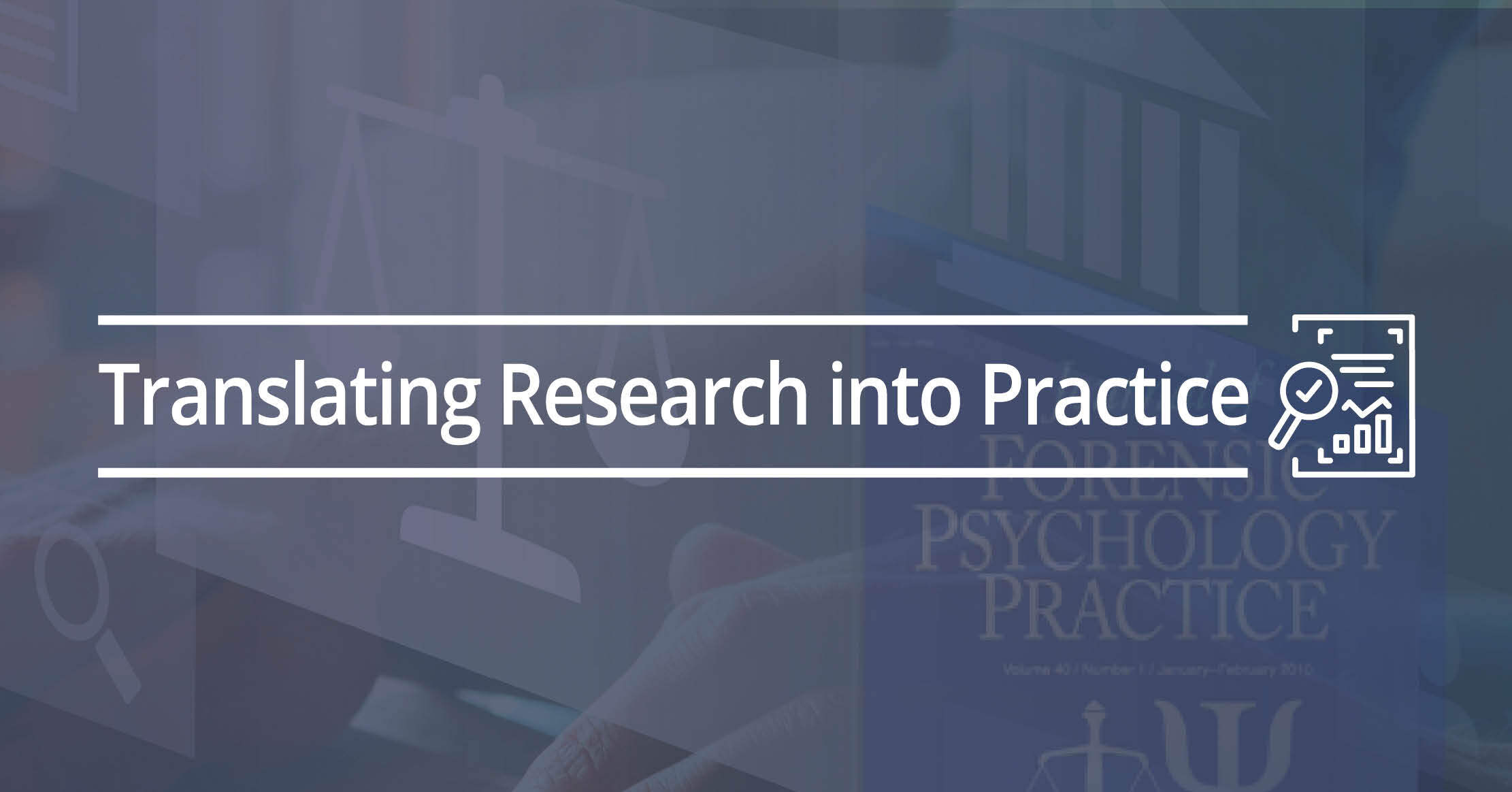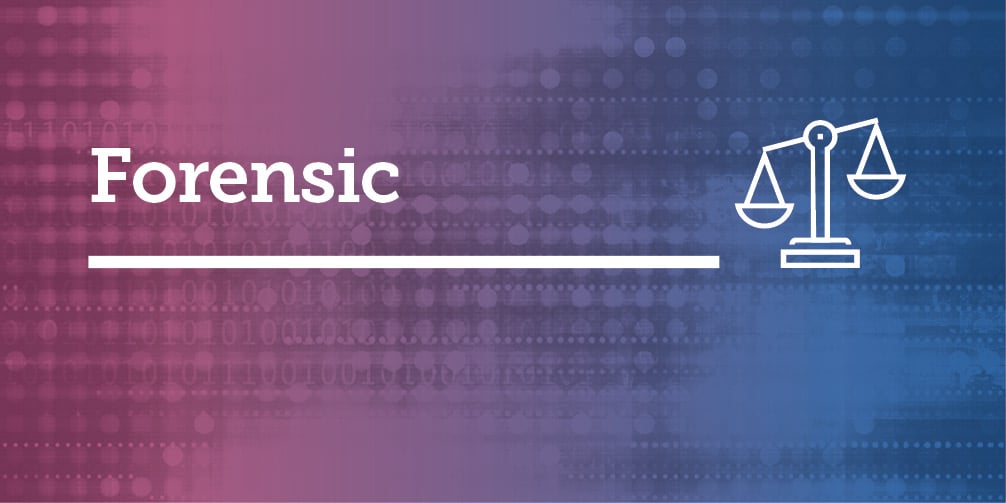Featured Article
Article Title
Which Information Matters? Using Policy Capturing to Understand Psychological Recommendations of Civil Competency
Authors
Emalee J. W. Quickel- Department of Psychology, Loyola University Maryland, Baltimore, Maryland, USA
George J. Demakis- Department of Psychological Science, University of North Carolina at Charlotte, Charlotte, USA
Charlie L. Reeve- Department of Psychological Science, University of North Carolina at Charlotte, Charlotte, USA
Abstract
Courts rely heavily on the recommendations of mental health evaluators when making decisions about competency (e.g., Zapf, Hubbard, Cooper, Wheeles, & Ronan, 2004), including civil competency (e.g., Quickel, Demakis, & Reeve, 2017); however, very little is known about how evaluators arrive at their opinions regarding an individual’s capacity. The current study assessed clinical decision-making using a policy capturing methodology. An ecologically valid sample (N = 47) of predominantly white (87.23%) and female (55.30%) clinicians who were eligible to conduct civil competency evaluations in North Carolina were recruited to examine the degree to which five key factors (functional test data, cognitive test data, personality test data, hospitalization history, and/or medication compliance) influenced clinician competency determinations. Personal insight into one’s decision-making process was also measured. Consistent with previous research, functional test data was weighted most heavily in evaluator decisions, though all five factors were considered. Further analysis suggested variable levels of self-awareness of one’s decision-making policies by participants depending on the factor. In addition, there was high agreement among clinicians when cases were straightforward, but perfect disagreement (half recommending competency, half recommending incompetency) among clinicians when cases were more complex. Implications for civil competency assessment and decision-making are discussed.
Keywords
Civil competency; civil capacity; clinical assessment; policy capturing
Summary of Research
“Legal civil competency hearings occur following a filed petition, often by a family member, stating that a respondent…is allegedly incompetent and unable to manage their own affairs. These legal proceedings, which may include accompanying mental health evaluations to assist in determinations of capacity, have important consequences for the respondent as the courts seek to balance autonomy with safety in order to reach a decision. Understanding psycholegal assessment and associated clinical decision-making has important implications for legal judgments, as there is a high concordance between clinical recommendations and legal determinations… The purpose of the current study is to utilize a policy capturing methodology to gain insight into how clinical evaluators weight various pieces of case information when making their civil capacity recommendations” (p. 694).
“An important consideration of policy capturing designs is the resulting vignettes, and the factors that they vary on, as those are the pieces of information that decisions may be based on… Although much has been written about the forensic assessment of civil competency by mental health professionals, a dearth of research exists on how the assessments translate into capacity/competency recommendations that subsequently inform legal decisions… legal scholars have suggested that legal decision-makers in criminal competency domains may be delegating their legal responsibilities to mental health experts. Indeed, the high rates of agreement… found in… examination of civil competency supports these concerns in the civil domain as well” (p. 695).
“Because of the importance of these determinations and the ambiguity of the current literature, understanding how mental health experts arrive at their decisions about competency recommendations is an important step in the process of more fully understanding the civil competency decision-making process… little research exists that may determine the extent to which mental health evaluators follow these guidelines, how they use different elements of the guidelines, and what sources of information most strongly predict their recommendations of civil competency” (p. 696).
“Cognitive bias in decision-making often occurs without self-awareness, means that relying on subjective accounts of decision-making, even (or especially) with confident participants, may lead to suboptimal conclusions about decision-making processes and outcomes. Thus, it is important to study decision-making tendencies in an objective way. Fortunately, this is something that can be empirically examined via the policy capturing paradigm… In fact, policy capturing has been successfully utilized in this way” (p. 698).
“The current study examined the predictive utility of five pieces of case information typically available to clinical evaluators: functional test data, cognitive test data, personality test data, hospitalization history, and medication compliance. On average, all five factors were significantly weighted in participants' decision-making, indicating that all five pieces of information contained important information that influenced their subsequent recommendations of competency. This supports research across a variety of legal domains that demonstrates the importance of these factors in both clinical and legal outcomes” (p. 705).
“The current study provides a glimpse into how clinicians arrive at civil competency recommendations: while they appear to utilize all available information to some degree, have moderate levels of insight into their use of several pieces of information, and have high levels of agreement when cases are more straightforward, it was also demonstrated that they may possibly over-rely on functional test data relevant to other information, have a lack of insight into their own decision-making in other ways, and have low levels of agreement when cases are complex” (p. 708).
Translating Research into Practice
Bias in Correct Vs. Complex:
“Even when clinicians are increasingly being trained to understand and be aware of the potential for bias in these types of assessments, [researchers] provided evidence for a “bias blind spot” in CST evaluations, such that individuals report that bias is a bigger factor in other evaluators’ decisions than it is in their own. However, when a “correct” decision is unknowable (or not an objective truth), concepts such as confidence and accuracy are more useful in theory rather than in practice” (p. 698).
“Future research would benefit from replicating this research with other relevant case factors, assessing civil competency evaluations in other jurisdictions, and assessing the impact of training on recommendations and clinician agreement. It may be particularly important to better understand the variability (i.e., disagreement) of recommendations when cases are more complex and thus clinical expertise is (arguably) most imperative” (p. 708).
Legal Implications:
“In addition, this study supported and extended previous findings… suggesting that functional measures are most predictive of legal adjudications of civil competency” (p. 705).
“...Policy capturing can be utilized to investigate decision-making across different jurisdictions to help learn whether individuals follow relevant guidelines when developing clinical recommendations and legal decisions” (p. 706).
Future Studies:
“It will also be important for future research to replicate the current study with a larger and more diverse sample, with different types of case vignettes, and in different jurisdictions. Civil competency is a state-based statute, which makes broad study and application difficult. Research that compares across states will subsequently be useful in informing policies that govern civil competency and its assessment” (p. 707).
Other Interesting Tidbits for Researchers and Clinicians
Clinician’s Take:
“Moreover, it is hard to know how historical and current case information, such as prior hospitalizations and medication compliance, which have been important in competency adjudication in CST research, factor into how clinicians view competency in civil domains” (p. 697).
Philosophical Underpinnings of Decision-making:
“There are many potential difficulties associated with simply asking mental health evaluators what information is important to their decision-making process. Cognitive psychology has a large literature that elucidates many heuristics and biases in decision-making. While this literature base is robust, and there are disagreements in the field about the philosophical underpinnings of decision-making in different contexts, the lens of heuristics and biases has been thought to be the most appropriate for contexts in which receiving information about the accuracy of one’s decision is unlikely or impossible, meaning that one cannot incorporate feedback to increase their relative expertise” (p. 697- 698).
“Insight into decision-making in legal contexts is important as there are statutory guidelines, as well as guidelines put forth by governing bodies in the field, that indicate how evaluations should be conducted and what information is important for evaluators to consider when making recommendations. An American Bar Association and American Psychological Association working group stated that legal evaluations ought to include consideration of legal factors, causal factors, and functional, cognitive, and psychological components” (p. 705- 706).
Additional Resources/Programs
As always, please join the discussion below if you have thoughts or comments to add!





























